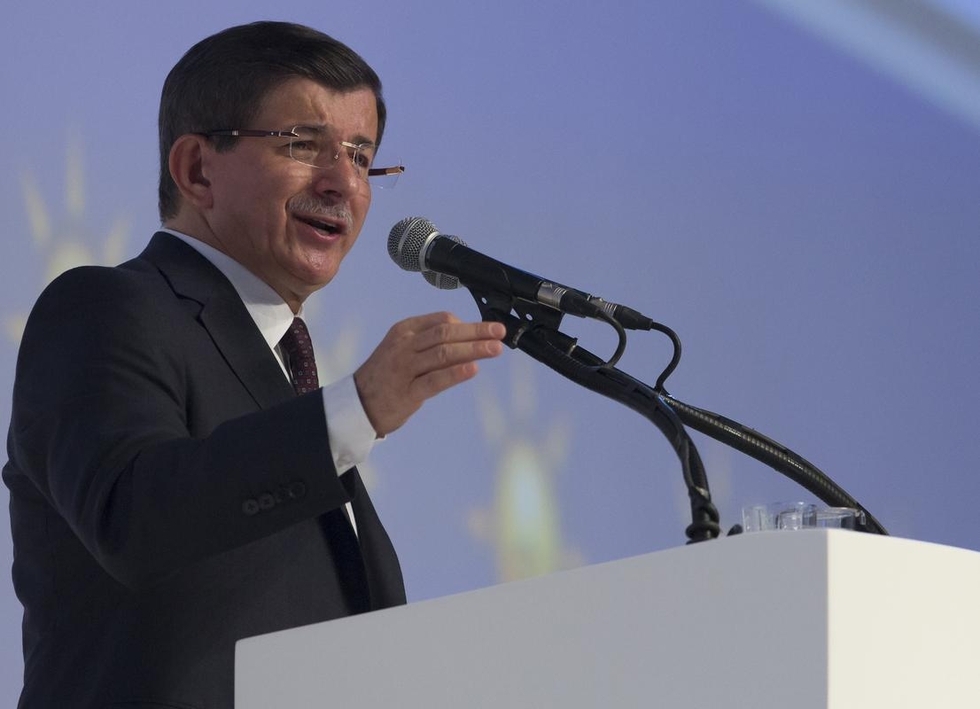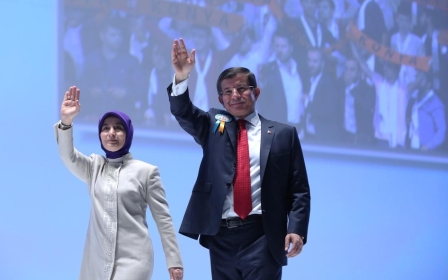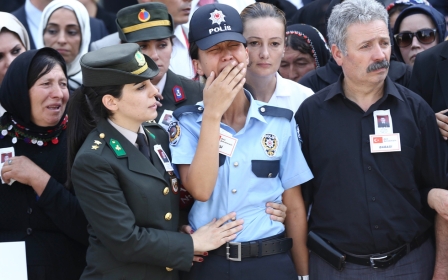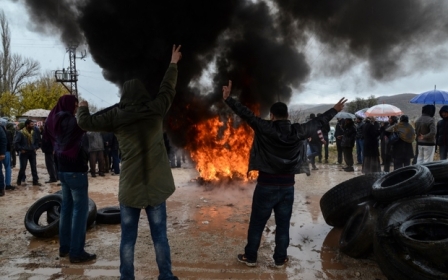Changing the names: Turkey’s main parties bring back old faces

In submitting their candidate lists, political parties just passed an important milestone on the way to Turkey’s general election on 1 November 2015. Given the highly centralised, strictly hierarchical and leader-centric nature of Turkish political parties, their lists of candidates do not have as much impact per se on the outcome of elections as they should in a well-functioning democracy.
The vast majority of voters decide on the colour of their votes well in advance of the election, and largely irrespective of the candidates listed. The percentage of undecided voters before the commencement of the election campaign period isn’t just exceptionally low: it is also increasingly on the decline as Turkish politics have progressively consolidated around religious/secular and ethnic/nationalist identities.
In spite of this, one can’t just simply gloss over the parties’ candidate lists. These lists don’t only indicate where the parties currently stand politically, they also show which directions they are evolving in and what policies they intend to pursue. It also reveals which voting bloc these parties aim to appeal, and what kind of lessons they took from the success or failure of previous electoral strategies. In the 7 June elections, the mainstream parties lost ground to identity-driven ideological parties.
The governing Justice and Development Party (AKP) and the main opposition secularist Republican People Party (CHP) lost votes. Though it was quite marginal – a measly 1 percent - for the CHP, the AKP's loss of public support was staggering, around 9 percent.
In contrast, the ultra-nationalist Nationalist Movement Party (MHP) and the pro-Kurdish Peoples' Democratic Party (HDP) considerably increased their share of votes. The HDP's increase has been particularly spectacular. It more than doubled its share of votes when compared with previous pro-Kurdish parties – increasing its votes from around 6.5 percent on average to more than 13 percent.
Sweeping change
Conscious of this reality, both the AKP and the CHP undertook a much more sweeping change in their candidate profiles than the far right MHP or pro-Kurdish HDP. The AKP has reshuffled almost half of its 7 June 2015 candidate list. Given that an estimated four to five percent of the AKP’s loss in the last election is attributed to Kurds deserting the party en masse, the reshuffle has particularly been striking in Kurdish majority provinces. It is entering the election with an almost completely different candidate list in 19 provinces.
Likewise, the CHP has also changed its list considerably, particularly in the 17 provinces where the party failed to gain any seats in the 7 June election. Of its elected members, it only replaced three names with new candidates.
Such a significant change by the two principal mainstream parties is a tacit acknowledgement of their failure on 7 June - recognising that their lists failed to appeal to people. In the post-election period, both parties have adopted a stance which appear to convey to the public that they have received their message. These stances seem to have helped them regain some new votes. Public surveys have recorded a modest increase in both parties’ votes.
But the questions that remains to be answered are: first, what are the political implications of the list? Secondly, to what extent will it have an impact on the public's voting behaviour?
First, unlike last week's low key and unimaginative congress, the AKP's candidate list seems crafted to reverse the people's growing disillusionment with the party. It annulled its three-term limit bylaw, allowing it to again nominate many of its most experienced politicians, who brought the party political success over the last 12 years. Particularly noteworthy and contrary to expectations, it kept its successful economic team in place, hence resisting the allure of economic populism.
Its list combined the experience of the party’s previous heavyweights with the new political elite, hence managing the transition smoothly rather than causing a sudden rupture. The change in the party leadership from President Erdogan to Prime Minister Davutoglu coinciding with the party’s three-term limit caused the party’s old guard to feel sidelined by the new elites. This feeling was particularly palpable in the run-up and aftermath of the 7 June election.
This risked some kind of rupture within the party. But by eliminating this bylaw and nominating 24 of these names in the 1 November election, the AKP appears to have forestalled such a rupture: instead it is steering a more gradual, and therefore smooth, change of political elites.
Second, contrary to the current state of affairs between Turkey and the Kurdistan Worker’s Party (PKK), the AKP has nominated some high-profile Kurds and prominent pro-peace process candidates onto its list. This indicated that the party hasn’t written the process off completely. Nevertheless, it remains to be seen as to what extent the change in candidate names will bear an impact on the party’s electoral fortunes, if at all.
Political deception
The politics of the names is important. One can make an addendum to the cliché that all politics are local, but all politics are also personal. This is valid both for the candidates that want to represent the masses and the masses that will elect the candidates. In the end, names convey a narrative, inclinations and a political vision. But one should not stretch this line too far.
The profile of the candidates can only be a game changer if it is supported by a corresponding political agenda, discourse and strategy. Hence, the congruence between the profiles of the candidates and the party's political agenda and parlance is a sine qua non for the success of politics of names.
All the prominent founding fathers of the AKP were also prominent members of the pro-Islamic National Outlook Movement’s (NOM) parties. Whereas the highest percentage that a NOM party ever received was 21.4 percent, the AKP received over 34 percent of the votes in the first election, 2002, that it contested. It later increased its share of the votes to as much as 50 percent. Though the names were the same, these cadres dramatically changed their political agenda, style, parlance and strategies. And people saw this change as genuine and hence supported it.
In contrast, without changing its politics in any serious way, the secularist CHP has attempted to bring more conservative, centre-right, and even Islamist names within its fold since 2010-11 in order to gain support from these segments of society, but to no avail. Putting aside the recent election experience, the party resorted to its old style politics and parlance with some new faces. People did not buy into this “old wine in a new bottle” style politics. They regarded this strategy more as political deception rather than a genuine political change, and thus did not support it.
All in all, a forward looking new narrative and genuine political change that aims to align itself with the people’s demands and aspirations will be the key that will determine the parties’ electoral fortunes in the November elections.
- Galip Dalay works as a research director at al-Sharq Forum and senior associate fellow on Turkey and Kurdish Affairs at Al Jazeera Centre for Studies.
The views expressed in this article belong to the author and do not necessarily reflect the editorial policy of Middle East Eye.
Photo: Turkish Prime Minister and Justice and Development (AK) Party leader, Ahmet Davutoglu gives a speech during the introductory meeting of AKP candidates for general election at Ankara Sports Hall on 21 September 2015 in Ankara, Turkey (AA)
New MEE newsletter: Jerusalem Dispatch
Sign up to get the latest insights and analysis on Israel-Palestine, alongside Turkey Unpacked and other MEE newsletters
Middle East Eye delivers independent and unrivalled coverage and analysis of the Middle East, North Africa and beyond. To learn more about republishing this content and the associated fees, please fill out this form. More about MEE can be found here.





